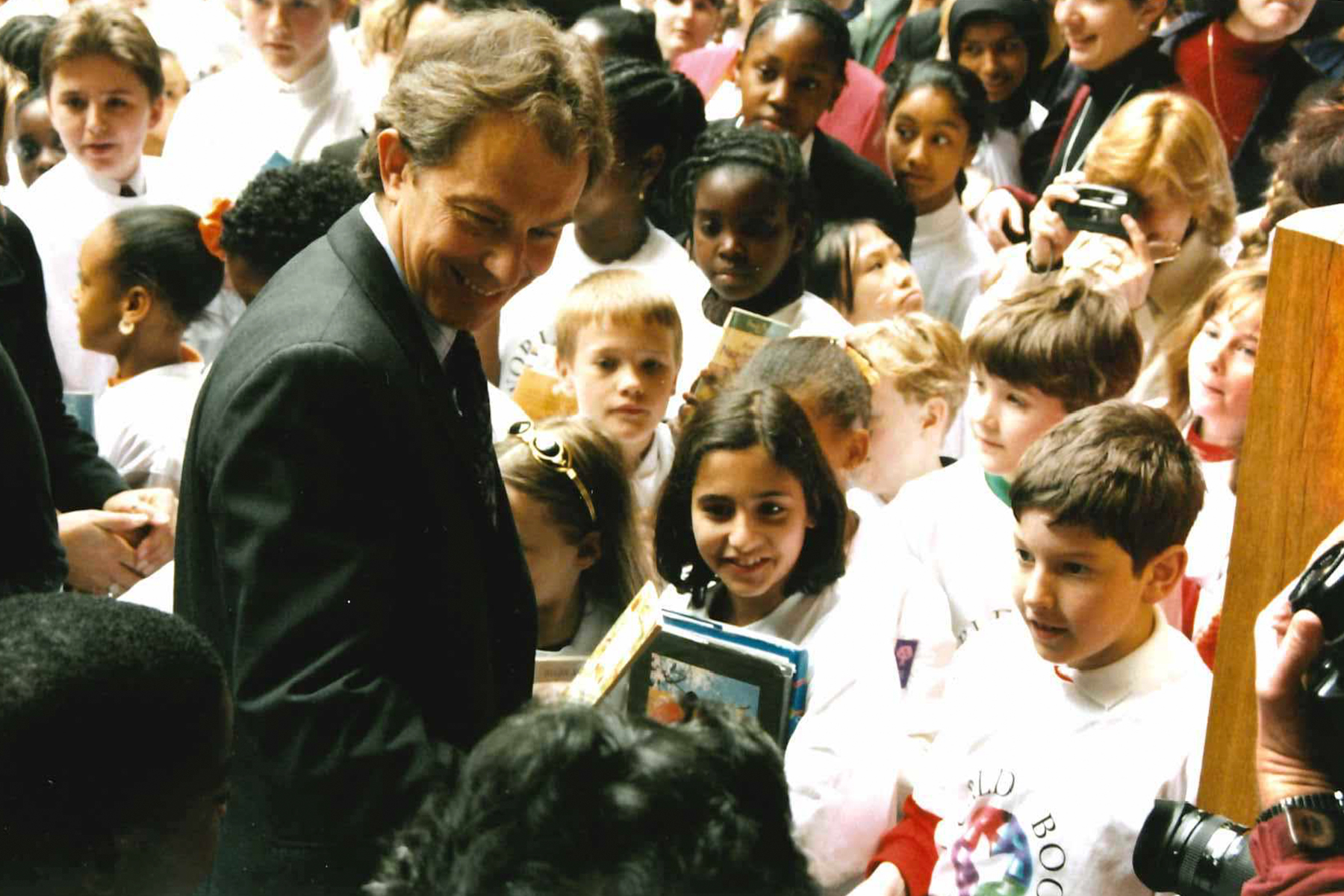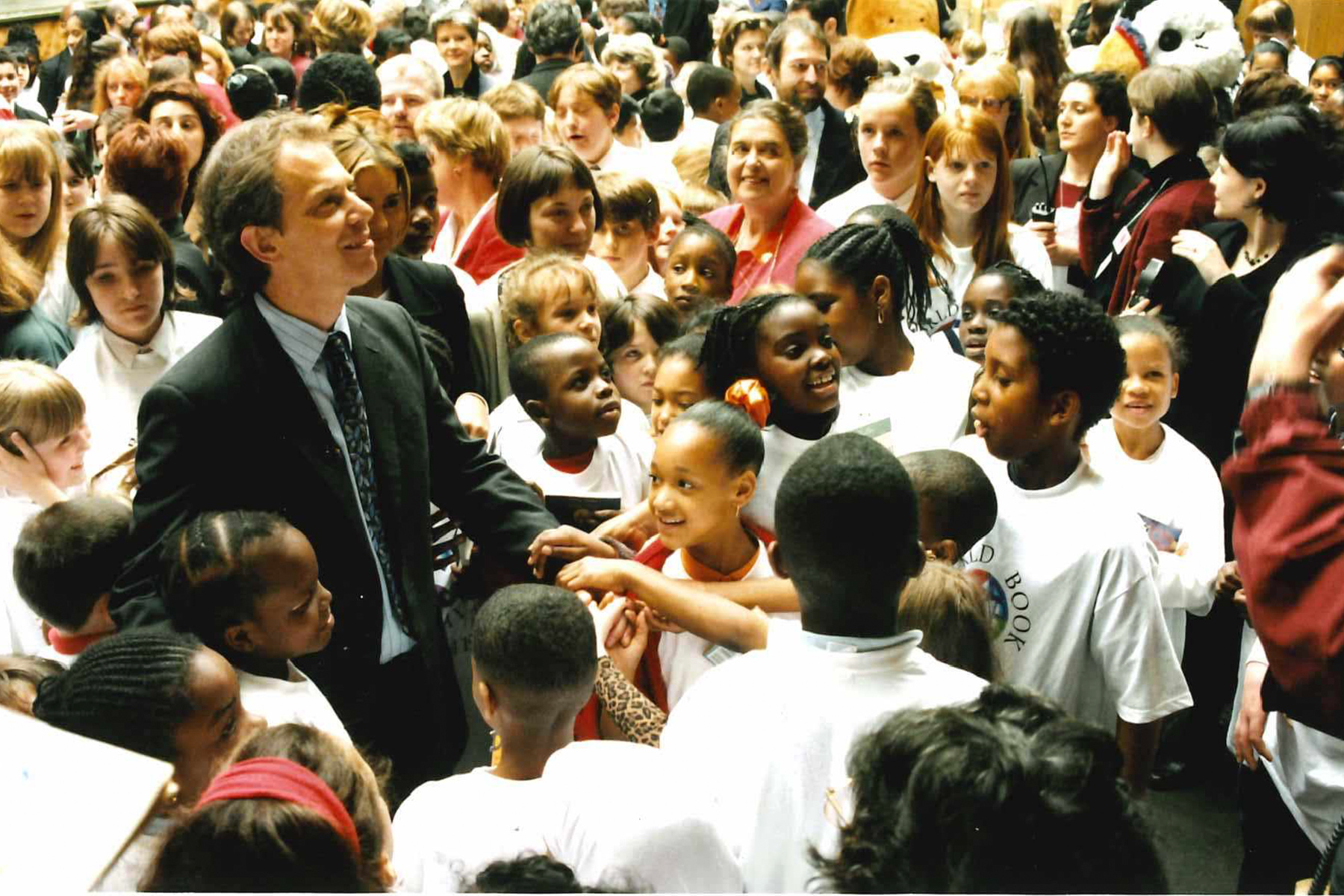
- Home |
- Search Results |
- ‘They were so excited’: 25 years of World Book Day
It’s difficult to imagine spring without World Book Day. Every year, children from nursery age to sixth formers dedicate a day to reading. There’s a flurry of activity involving fancy dress and choosing favourite books as stories take over classrooms and assembly halls. For a whole day, the power of reading reigns supreme.
But in the late-Nineties, literacy was ailing. “The big issue was that kids were reading less. They were watching videos, basically – they hadn’t even moved on to smart phones and computers, but literacy was stalling,” Gail Rebuck tells me in her office. “There were a lot of children who didn’t own a book.”
The problem was recognised at a national level: September 1998 marked the introduction of the then-contentious ‘literacy hour’ – a government stipulation that every primary school pupil undertake a strict programme of daily reading and writing – that reshaped the curriculum up to the present day. New Labour, who had won a landslide election the previous May, held the ambition for 80 per cent of 11-year-olds to be reading at their age level or above within the next four years.
'There were hundreds of kids who never visited a bookshop, a library - many of whom didn't own a book. And that we had to do something about it'
But for Rebuck, then the chair and CEO of Random House UK (before it merged with Penguin books), the problem was more personal. “My children went to a state primary school, in Bayswater, with a very diverse group of kids, including many recent refugees. Every weekend, I would take my daughters into Books Etc over the road from the school, where the staff allowed children to use the shop like a library – just sit and look at the books. I realised that across the road, there were all these hundreds of kids who never visited a bookshop, a library - many of whom didn't own a book. And that we had to do something about it.”
Rebuck had heard of World Book Day from Simon Master, then Chair of the Publishers Association, who had encountered it in Barcelona: “it was like a big festival, they had major authors giving talks, and every time you bought a book, you were given a rose”. She swiftly realised that April in the UK was rarely as clement as Catalonia, but in lieu of flowers, children could be given books.
“I thought, what’s really important is to kickstart the relationship between children and reading,” Rebuck says. “I don't know how, but the idea popped into my head that a way of getting children from the school into a bookshop would be to entice them with a one pound voucher. So that was a simple idea: if we can get a voucher to every school-aged child between the age of five and 18, and encourage them to visit a bookshop where they could redeem it, making a paperback book affordable.”

Balls started to roll, with changemakers and committee members from exam boards, retailers, the Department of Education and Alan Yentob, then Director of Programmes at the BBC, coming on board to make World Book Day happen. Rebuck swiftly realised that even a voucher that covered half of the cost of a book – children’s paperbacks in the late-Nineties cost between two and three pounds – would still be too expensive for many. “I realised that there would be a huge number of children who wouldn't have the extra pound,” she says. “I thought, well, we're going to have to produce a book for a pound. And we didn't have much time. So I called up Penguin, funnily enough, because they were the largest children's publisher, and I said: ‘Would you put together a compilation book for me? We will get a million copies printed for free, as so many printers were supportive and the whole printing initiative was organised by Stephen Esson.’”
Notable celebrities from the time were asked to contribute to an anthology, writing about their favourite books. Tony Blair chose Ivanhoe by Walter Scott. Geri Halliwell (“I was obsessed,” Rebuck remembers, “with getting the Spice Girls”) opted for The Road Less Travelled, M Scott Peck’s bestselling guide to being your best self, published 20 years earlier. Ten million vouchers were printed and then distributed to schools, as bookshops prepared for the deluge.
'We filled it The Globe with kids from all the local primary schools. We had two secretaries of state, and the Prime Minister'
Meanwhile, at the freshly restored Shakespeare’s Globe theatre, plans were afoot: World Book Day’s first proper launch in London was to take place on the Bard’s birthday – April 23 – in the theatre that bore his name. The great and the good were in attendance: Yentob, Tony and Cherie Blair, then-Education Secretary David Blunkett, Culture Secretary Chris Smith and, for the ultimate Nineties touch, Blue Peter presenter Katy Hill.
“We filled The Globe with children from all the local primary schools. We had two secretaries of state, and the Prime Minister,” says Rebuck. “So it was pretty good going. The children were very sweet and exuberant. They were so excited, even though they hadn’t a clue who the politicians were!”
The first World Book Day ended up being more than just a good photo opportunity. “When we did some research afterwards, we found it had earned 77% recognition nationally, which was unbelievable. I mean, I literally didn’t believe it,” says Rebuck. “I think it proved to the publishing industry that we could do something magnificent together.”
It also created a legacy: after two years of hard graft bringing it to fruition, Rebuck gave World Book Day to the Publishers Association and the Booksellers Association, making it a charity in the process, with a suggestion of a rotating chair – “somebody different each year, to keep it fresh, and keep it going”.
Twenty-five years on and 2022 will be the first World Book Day back in schools after the chaos of lockdowns, and it couldn’t be more crucial. Once again, the discussion of children’s literacy is back in the headlines after years of disrupted learning due to the pandemic. “We have another wave of crisis in literacy,” says Rebuck. “Over 50% of children have fallen very far behind. It's a perfect moment to revitalise World Book Day and reinvent it again with new energy.”